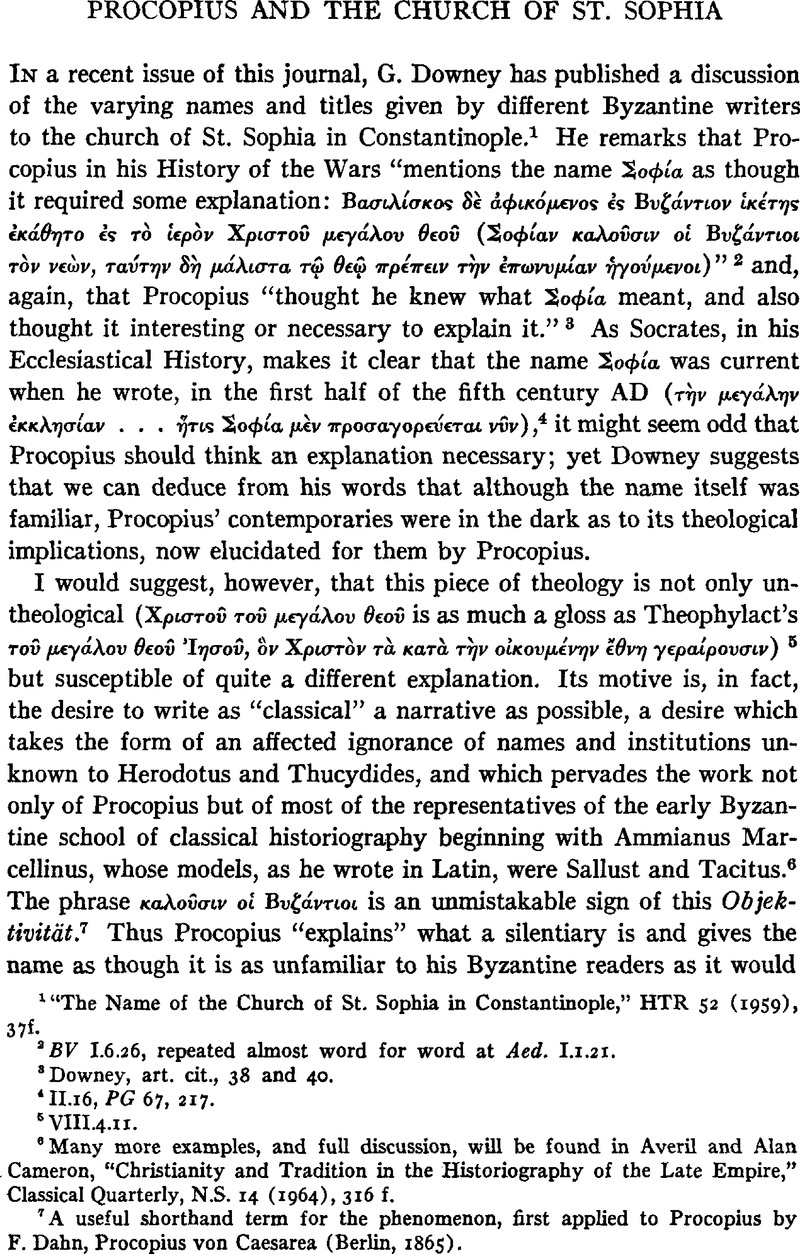Published online by Cambridge University Press: 23 August 2011

1 “The Name of the Church of St. Sophia in Constantinople,” HTR 52 (1959), 37f.CrossRefGoogle Scholar
2 BV I.6.26, repeated almost word for word at Aed. I.1.21.
3 Downey, art. cit., 38 and 40.
4 II.16, PG 67, 217.
5 VIII.4.11.
6 Many more examples, and full discussion, will be found in Averil and Cameron, Alan, “Christianity and Tradition in the Historiography of the Late Empire,” Classical Quarterly, N.S. 14 (1964), 316 f.Google Scholar
7 A useful shorthand term for the phenomenon, first applied to Procopius by Dahn, F., Procopius von Caesarea (Berlin, 1865).Google Scholar
8 BP II.21.2.
9 BV I.10.3.
10 BV II.2.1.
11 BG I.4.1.
12 BP I.25.32.
13 BP I.18.15, BV II.14.7.
14 BV II.21.21.
15 Anecd. 11.14.
16 Cf. Cameron, art. cit., 317. Cf. BP II.9.14 τὸ ἱερὸν … ὅπερ ἐκκλησίαν καλοῦσιν, after which he can afford to refer at II.10.6 simply to ἐκκλησία.
17 Aed. I.2.13, V.9.5.
18 Aed. I.2.13
19 V.9, p. 295.8 Bonn.
20 VI.8.8
21 H.Soph. 414.
22 IV.31, p. 180.9 B.–P.
23 Cf. e.g. Theophanes I. p. 154.5, 181.28, 217.18 etc. de Boor; Downey, art. cit., 37f.
24 Some of the Agathias MSS contain a collection of excerpts often amounting to no more than paraphrases of the text.
25 E.g. Par. gr. 3025, f. 30.
26 Aed. I.1.66. As with ἐκκλησία in note 16 above, Procopius feels free to drop the Objektivität once he has paid lip-service to it—cf. Aed. I.2.13: ἐκκλησίᾳ δὲ τῆ μεγάλῃ ὅμορον …